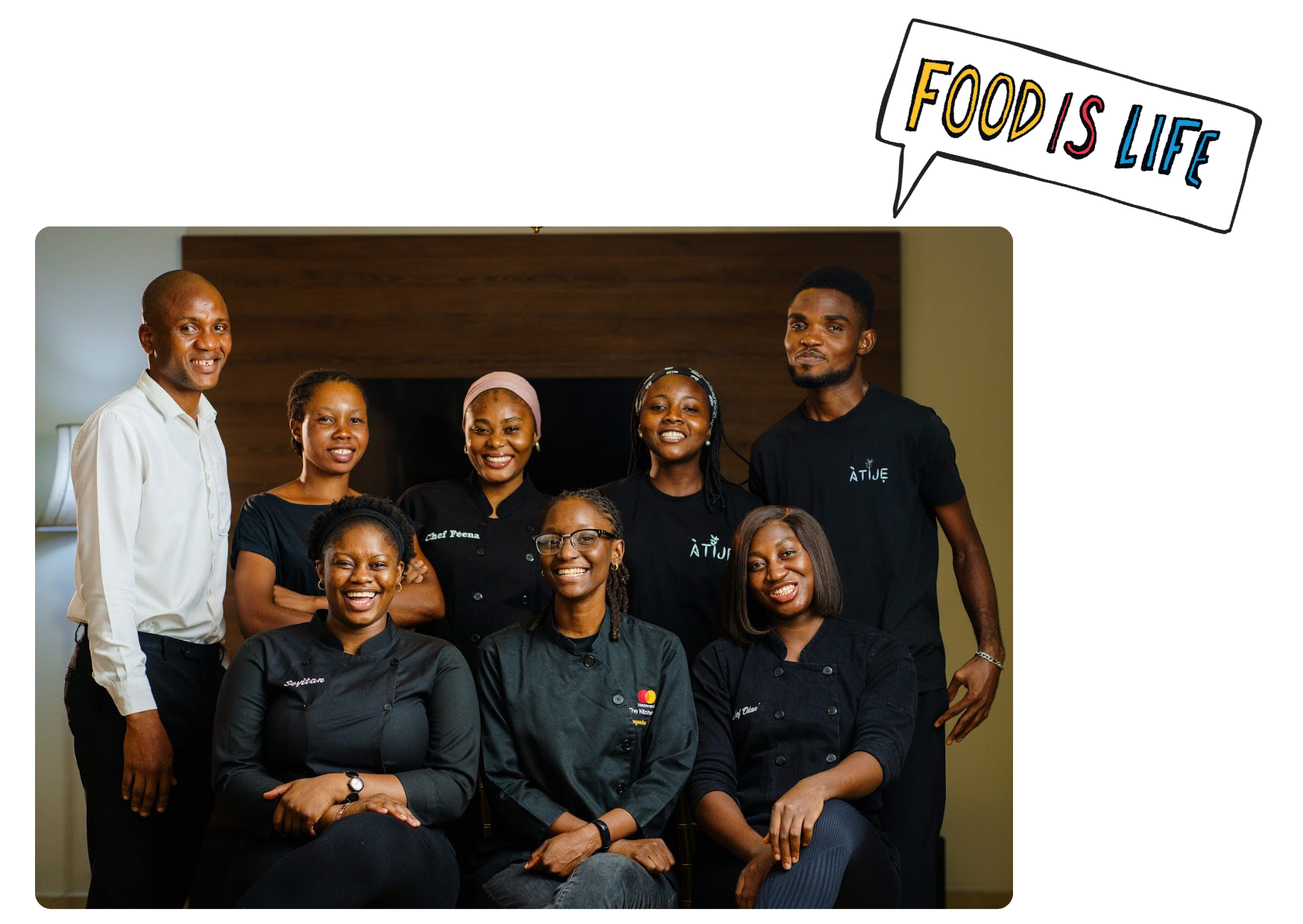In the heart of Lagos, Nigeria, Chef Moyo Odunfa is using the bounty of local and seasonal ingredients to offer her interpretation of regional cuisine at its best, drawing inspiration from ancestral traditions. At her immersive culinary experience, Àtijẹ—meaning “how we eat”—she invites guests on a path of discovery, exploring the rich fabric of Nigerian food and culture.
From the resilient grains of Acha to the versatile cocoa pod, Chef Moyo is crafting menus that are both creative and deeply rooted in cultural heritage. For her, sustainability is not just a practice; it’s a means of preserving the land, the sea, and the stories that bring a dish to life, ensuring that future generations can savour the same diverse flavours that define her homeland.
Rooted in Thematic Area 5: Celebration of seasonal & local food, Chef Moyo’s philosophy honours the ancestral wisdom passed down by her elders. Focusing on seasonality and supporting local livelihoods, her team minimises waste and maximises the potential of every ingredient, creating dishes that are delicious and thoughtfully crafted.
Through Àtijẹ, Chef Moyo is transforming the way we think about food, and inspiring a rising generation of chefs to honour indigenous and seasonal foods.

Chef Moyo believes that Nigerian food tells deep, interwoven stories about culture, tradition, folklore, the past and the future.
She believes that how people eat plays a big part in who we are and who we become.
We asked her how local and seasonal food have influenced who she is, her cuisine, and her philosophy on sustainable food systems.

What inspired you to focus on sustainability in your culinary career?
“I am inspired by the beauty and bounty of Nigerian cuisine and culture. Sustainability plays a big part in preserving our culture for future generations to enjoy. This includes respecting the ingredients, the land, air and seas they come from and the people that farm, transport and sell them. As well as ensuring we minimise waste and utilise every part of the ingredient. Ensuring that we can preserve our diversity of beans, spices, fishes, grains and much more is my main driving force.”
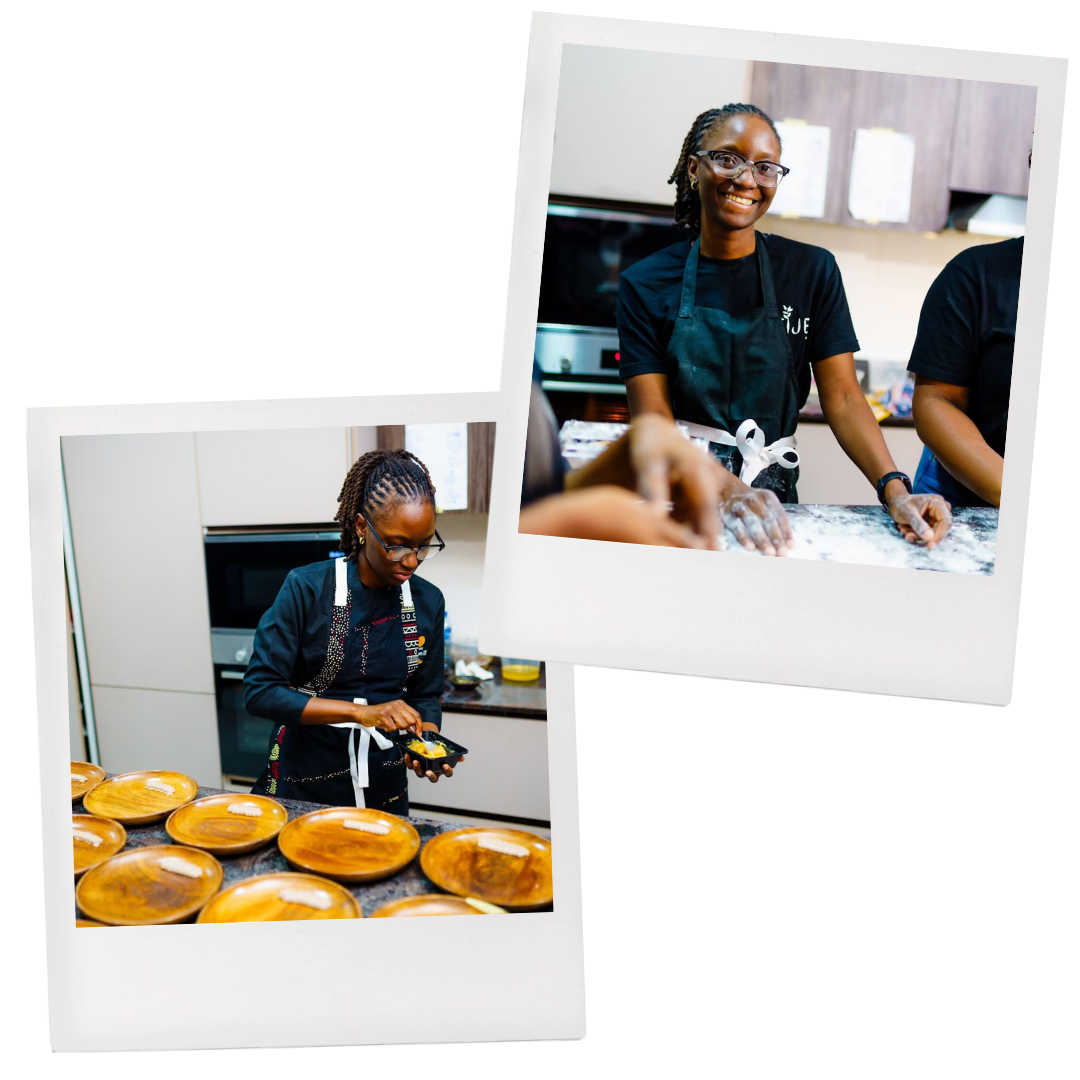
How have regional culinary traditions shaped your philosophy on sustainability in the kitchen?
“Our mothers and grandmothers, fathers and grandfathers have passed down legacies from our ancestors and in watching their practices and mannerisms, we can find such interesting philosophies. In practically every Nigerian tribe, no part of the animal goes to waste—each has its own unique delicacy. Like Isi Ewu, from the Igbo people of South Eastern Nigeria, this dish transforms goat head into a wonderful dish. This has encouraged me to see every edible part of a food product as useful—even if I do not know how to use it, I can embark on a tasteful journey of discovery.”
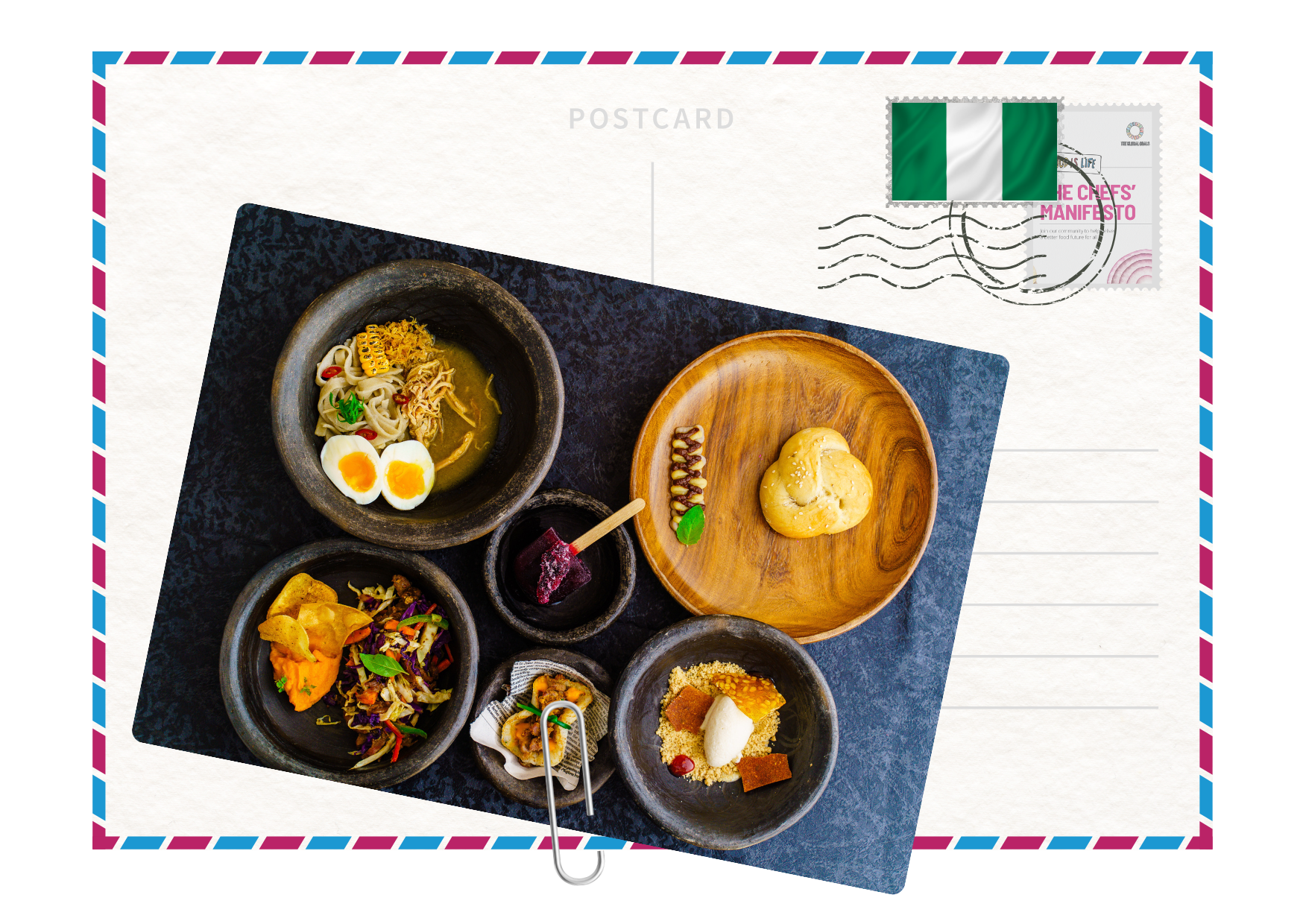
Can you share a story about a specific seasonal ingredient or local producer that inspires you?
“The cocoa fruit inspires me. Although being a cash crop in West Africa means that it can be challenging to access the cocoa pod itself. It is such a versatile and interesting ingredient. The juice is sweet and refreshing, the pods are bitter and fruity, and when fermented become the foundation for many lovely ingredients from cocoa butter to the various chocolate products discovered and yet to be discovered.
Locally, the young cocoa pods are used to make a soup called ‘Ila Cocoa’- very similar to okra soup as the young cocoa pods resemble okra in its mucilage. Loshes chocolates is an inspiring chocolate producer that makes bean to bar chocolate bars in Lagos Nigeria. Using cocoa beans grown predominantly by women in Osun state, Nigeria.
At the Àtijẹ experience, we made a dessert focused on the cocoa pod last December. A cinnamon tart, filled with a white chocolate créneaux and a dark chocolate crémeux, topped with cocoa juice gel, strawberry gel and a cacao nib crumble. It was lovely!”
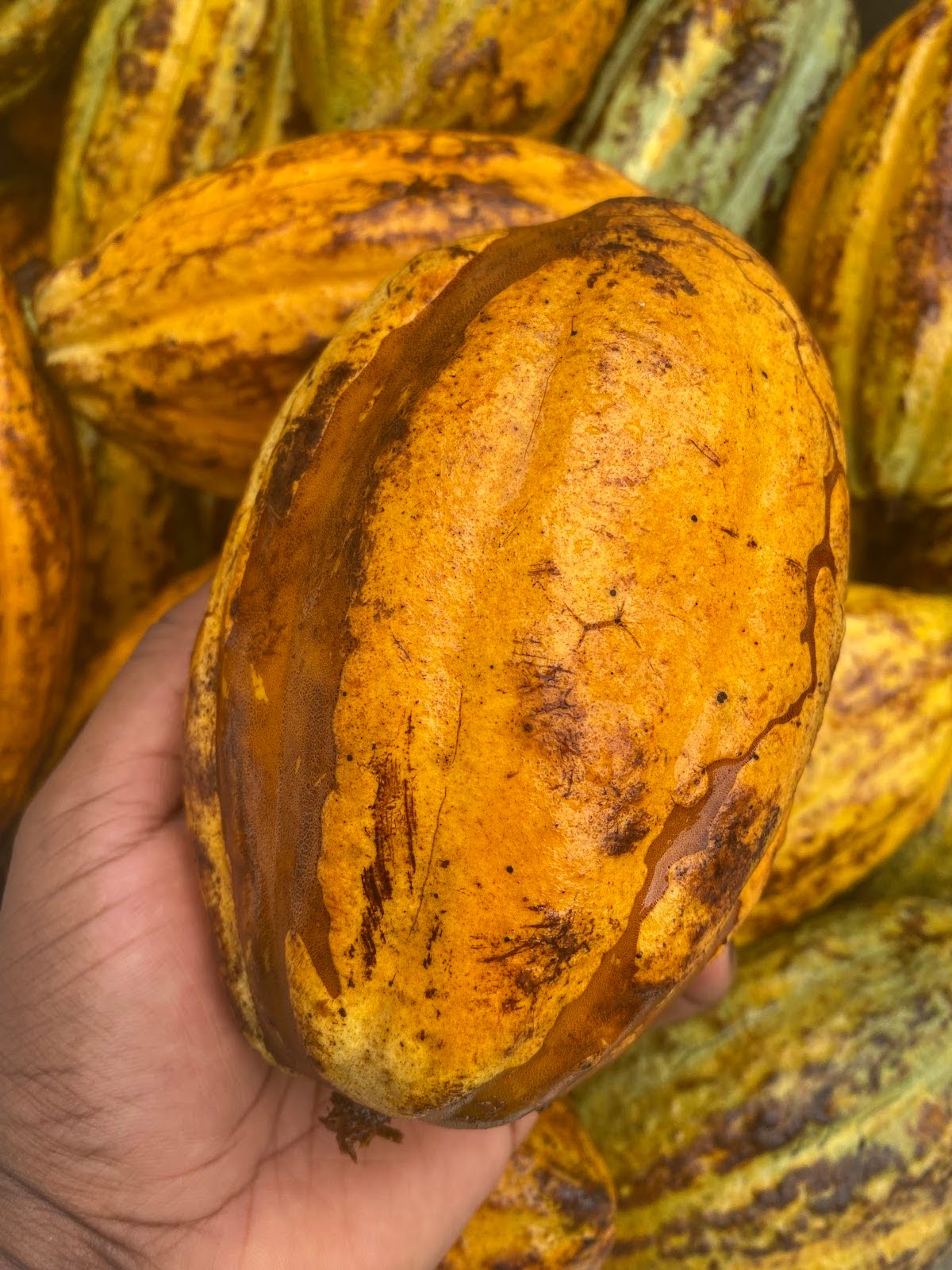
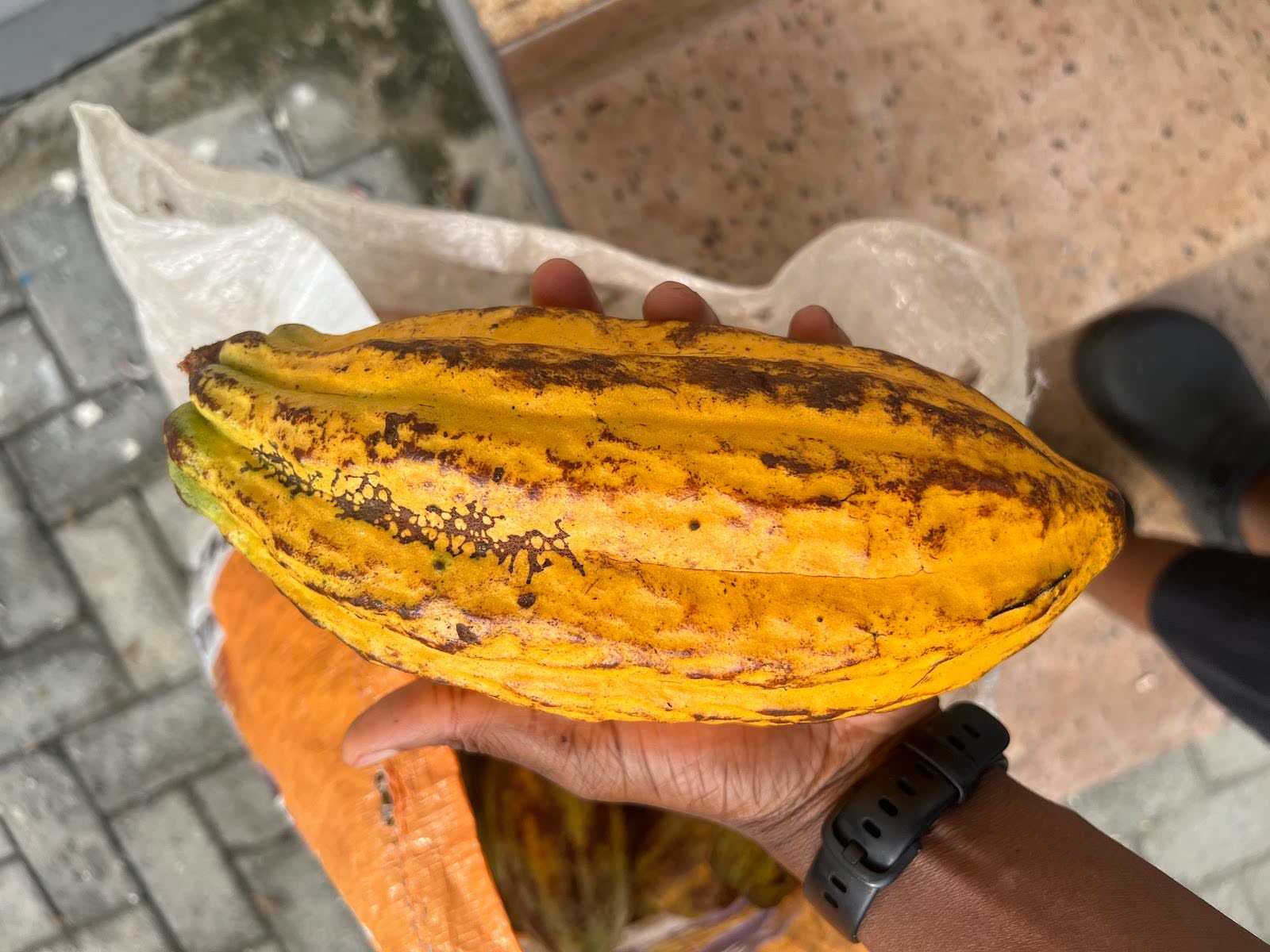


In what ways can promoting local and seasonal foods help address some of the critical issues facing our food systems today?
“I believe that promoting local and seasonal food is truly transformative. Local crops that are indigenous to the land and easy to grow hold the key to resolving a lot of critical issues in our food systems today. Crops like Acha or fonio and others in the millet family are drought resistant, high in vitamins, minerals and fibre. This means they have the potential to replace or supplement other starches in high demand, which are becoming more expensive all over the world.
Focusing on seasonal produce is great for the environment and for our bodies as we get the nutrients that nature knows that we need in each season. Ensuring that fruits and vegetables in season are properly utilised, preserved whenever there is a glut and transported where there is the greatest need is invaluable. As sometimes we have excess produce when it’s in season and it goes to waste—we have the means to prevent this.”

What role do you think young chefs can play in transforming food systems, and how are culinary schools and employers taking responsibility for training them to care for people and the planet?
“Young chefs can bring a fresh perspective to the industry and existing food systems. Culinary schools can lay a foundation, but I believe there is more still to be done. Employers also have a part to play in encouraging young chefs to use their creative minds to reinvent the traditional dishes and ways of doing things to create a more innovative and sustainable future. As young chefs have an ‘outside looking in’ perspective on the industry, they can see gaps and unique opportunities that those immersed in the system cannot. So it is very important to listen to them and make sure they feel heard.”
